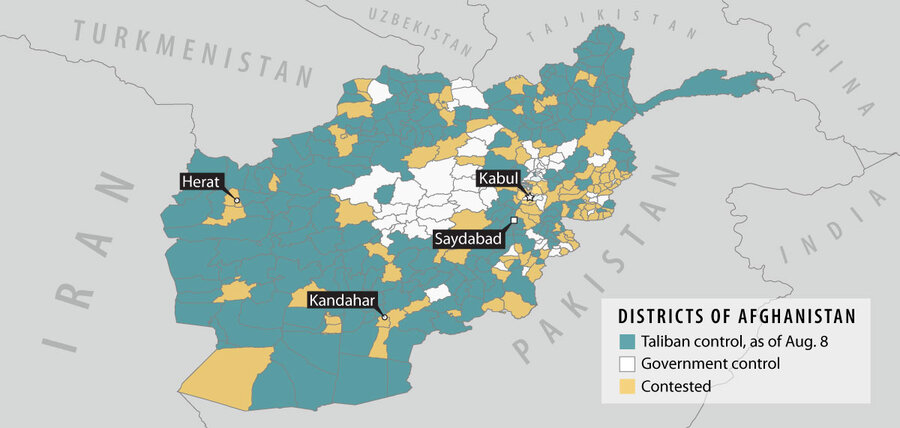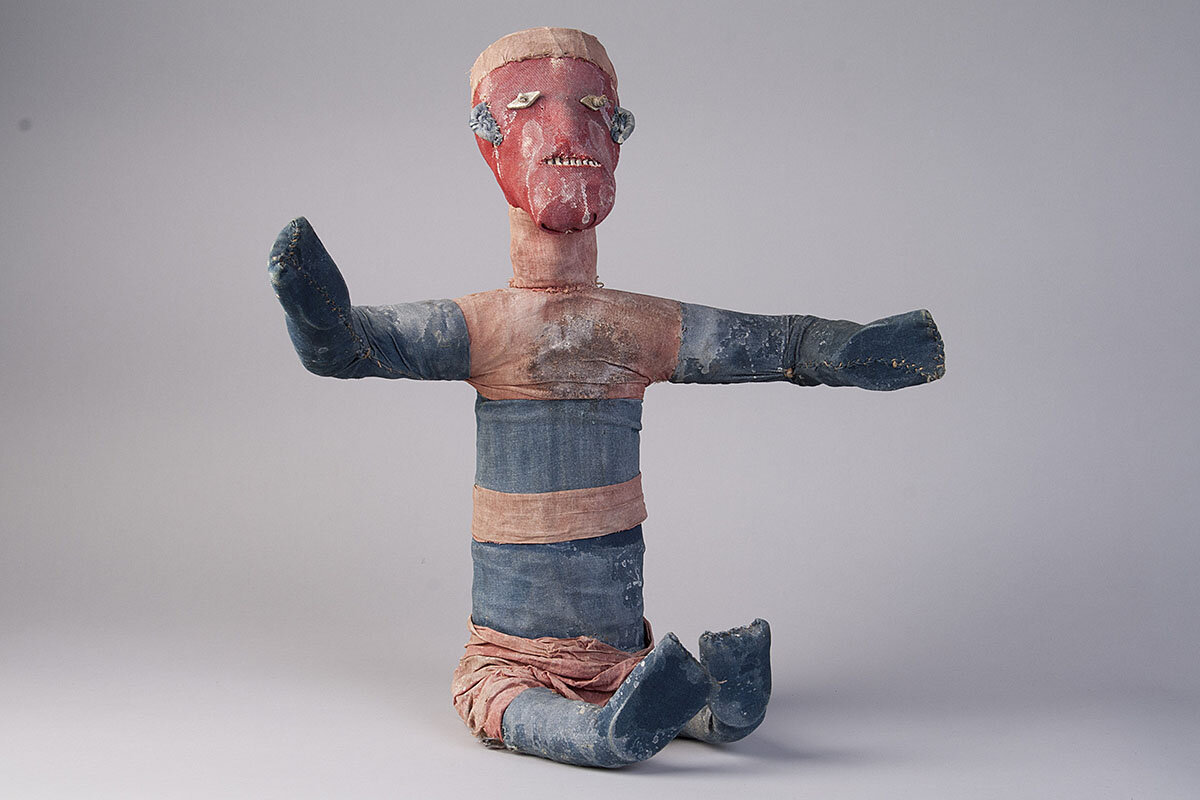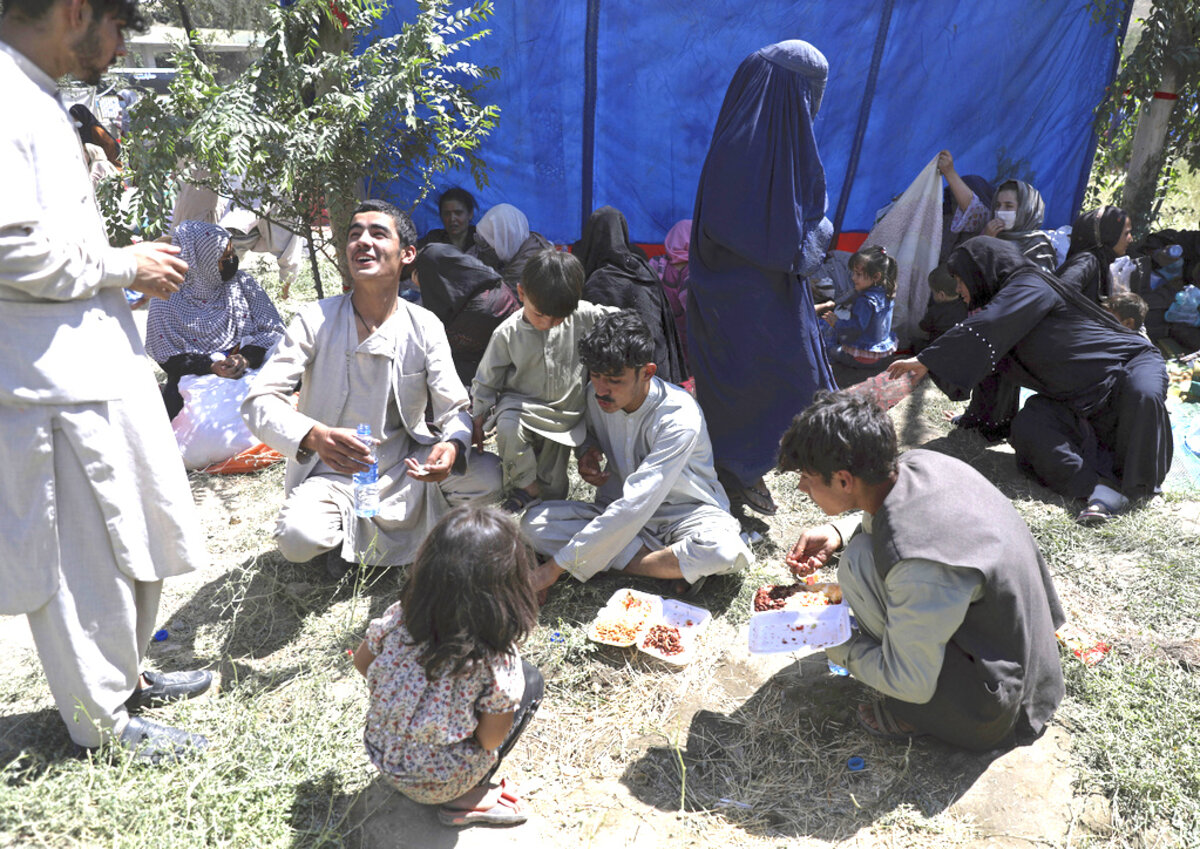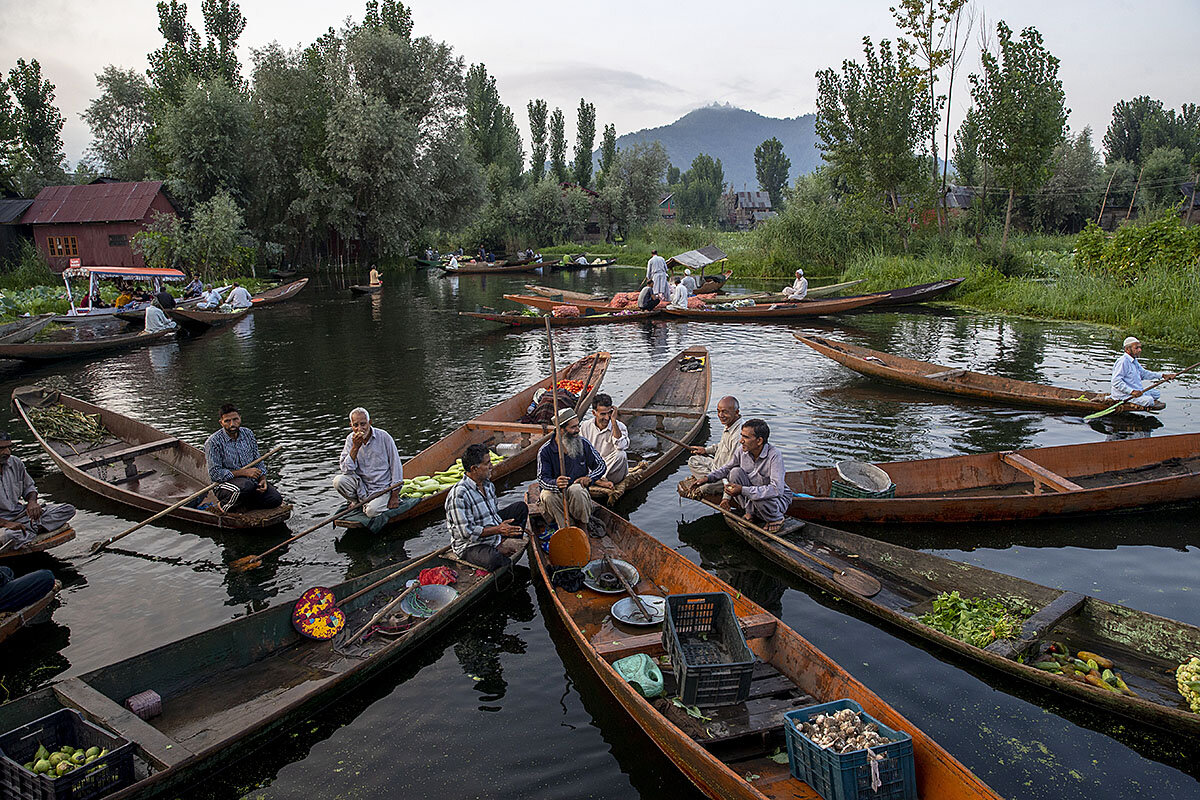As the Taliban sweep across Afghanistan, the assassination over the weekend of a district governor, interviewed by Monitor correspondent Scott Peterson 18 months ago, is a case study in loss, but also courage.
Monitor Daily Podcast
- Follow us:
- Apple Podcasts
- Spotify
- RSS Feed
- Download
 Amelia Newcomb
Amelia Newcomb
Over the weekend, I heard someone express appreciation for a conversation that pushed her thought in new directions. The phrasing caught my attention because it’s something we talk a lot about at the Monitor: identifying important shifts in thinking on key issues, and exploring what’s driving them.
Nick Roll addresses one such shift in his story today about Western museums whose African collections raise questions about a colonial legacy of looted artwork. Long-accepted practices are being challenged – donations or purchases where paperwork is thin, silence amid troubling possibilities, disinterest in working with countries of origin. Moving to the center is a question posed in our story two years ago about the Benin Bronzes: “Who should be the caretaker of Africa’s cultural heritage – the Africans who created it, or the Europeans in whose museums it has long been displayed?”
The issue resonates broadly. Last week, a plane landed in Baghdad carrying 17,000 artifacts, the largest ever repatriation of antiquities to a country where looting spiked amid war. The items came from the Museum of the Bible in Washington, D.C., and Cornell University. The U.S. Justice Department played a key role with fines and pressure, and reforms are underway.
What’s shifted is an appreciation for what lies behind a physical artwork. “This is … about the Iraqi people,” said Iraq’s minister of culture. “It restores not just the tablets, but the confidence of the Iraqi people by enhancing and supporting the Iraqi identity in these difficult times.”











